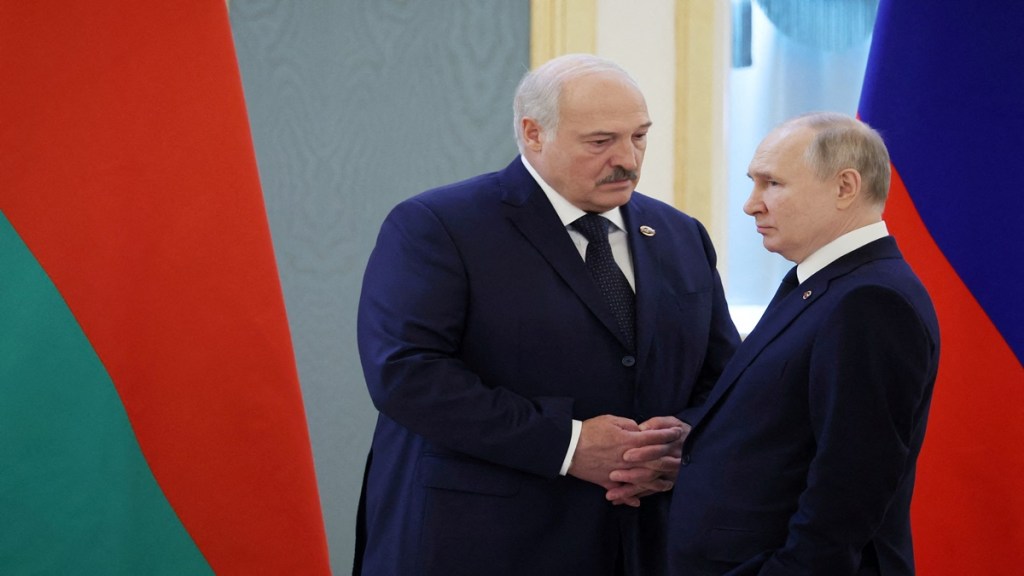By Tushar Bhaduri
Those who believe that sport and politics do not mix should reconsider their opinion based on the reactions to the International Olympic Committee’s (IOC) attempts to bring back Russian and Belarusian athletes to the world stage, a move protested vehemently by not just Ukraine but almost the whole of the Western world.
Also read: Ringside view by Tushar Bhaduri: Most bankable match-winner
Russia’s invasion of its immediate western neighbour (a campaign that Moscow calls a ‘special military operation’), using Belarus as a launch pad, is well into its second year now, but shows no signs of an end just yet. With several sportspersons, both past and present, losing their lives in the war, and Russian sport integrally linked to its armed forces and intelligence agencies, the argument against their rehabilitation back into the international sport can be well understood.
A lot of active athletes have made their feelings known in support of their Ukrainian counterparts, and refused to play against Russian and Belarusian athletes, or at least refused to shake hands.
The IOC, on the other hand, while devising a pathway to get sportspersons from both countries back to the elite arena, argues that athletes can’t be punished based on their passports and can’t be held accountable for the decisions and actions of their governments. The world body has ruled that Russians and Belarusians allowed back would have to compete as ‘neutrals’ without their national flags, symbols, or anthems. Athletes from these two countries would only be competing in individual events, and not in team sports.
This plan does not include next year’s Paris Olympics, but is unlikely to bring an end to the impasse. A large proportion of Russia’s medallists at the Tokyo Games had ties with the armed forces or the intelligence. They either are overt supporters or identify themselves with the current regime at the Kremlin.
The IOC has tried to play a balancing game but as is often seen in such cases, has ended up antagonising both sides. Ukraine and the Western bloc have targeted the world body for ignoring the plight of the country and its athletes who are suffering an invasion, and going against so-called popular sentiment among sportspersons. Many countries have threatened to boycott the Paris Olympics if Russians and Belarusians are part of it while the invasion is still on. Ukraine has forbidden its athletes to compete in events, even Olympic qualifiers, if sportspersons from Russia or Belarus feature in them.
The IOC has pointed at tennis as one of the sports where Russians and Belarusians compete, often against Ukrainians across the net, even though the flags of the two countries are not displayed. But several top players have called out IOC president Thomas Bach for giving this example, saying they have no option as their rankings and earnings are at stake. In fact, Ukrainian player Lesia Tsurenko has said that she suffered a panic attack when WTA chief Steve Simon expressed his confidence in Russians and Belarusians returning to the Olympics. World number 1 Iga Swiatek, a Pole, has also been vocal in support of her Ukrainian counterparts.
Can’t please everyone
Russians have decried the recommendations as it effectively disqualifies a large part of their probable contingent, allegedly goes against fair play, and mixes sport with politics.
Also read: Ringside view by Tushar Bhaduri: Pitch plays on Aussie minds
The whole issue assumes added significance as Russia is a bona fide sporting superpower, and any medals won in their absence may not be against the best possible opposition. India’s eighth hockey gold medal at Moscow 1980 is often said to be achieved at a boycott-ravaged Games.
On the other hand is the argument that elite national sides such as Italy, the Netherlands, and England have often failed to qualify for the FIFA World Cup, but it has hardly taken any lustre off the Greatest Show on Earth.
Wimbledon banned Russians and Belarusians from the tournament last year, resulting in losing ranking points and incurring a fine for its decision. But this year, it has also fallen in line with other Grand Slams in allowing competitors from these two countries as ‘neutrals’, though concerns remain that any good performance by a Russian and Belarusian could be used by their governments for propaganda purposes, even though all such players will have to sign an undertaking that they don’t support the invasion and are not sponsored by their government or state agencies.
Well, it isn’t the first time geopolitical issues have cast a shadow on the Olympics. The Cold War saw tit-for-tat boycotts at the 1980 Moscow and the 1984 Los Angeles Games, by the United States and the Soviet Union respectively. In present times, North Korea resorts to pullouts to catch the world’s eye.
However, Russians and Belarusians have got an ally in the form of Asia, where they can at least get some top-level competition, which may not be forthcoming for them in Europe at the moment. There is also talk of them participating in Asian Olympic qualifiers in various sports, and competing for spots available to the continent. But that may queer the pitch if athletes from the two countries, who are invariably of a high standard, increase the competition and end up taking Olympic spots for Asian competitors.
India and most Asian countries show solidarity towards Russia and Belarus against, what they believe to be, the West’s high-handedness and double standards. But they too won’t like to go against their own interests and those of their athletes.
One thing is for sure. One hasn’t heard the last of this complicated issue.
